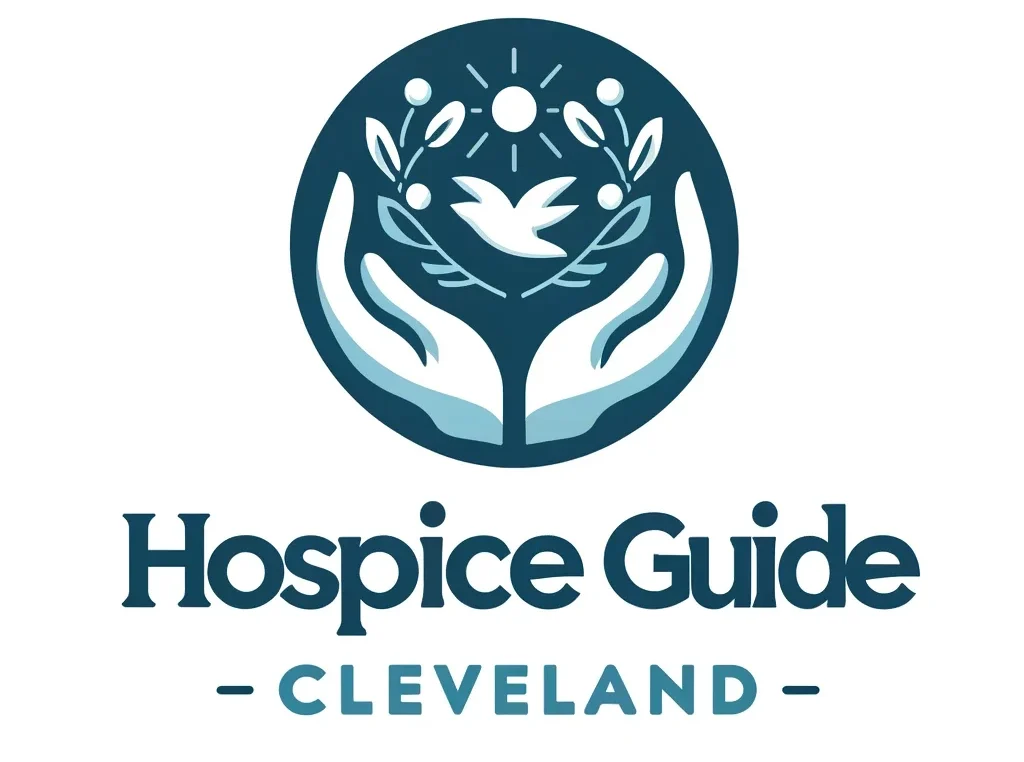Hospice care is a holistic approach that extends beyond the physical care of individuals with life-limiting illnesses, addressing also the emotional and psychological needs of patients and their families.
A critical aspect of this comprehensive care is hospice family counseling. This service provides support and guidance as families navigate the complex emotions that accompany the end-of-life journey of a loved one.
Counseling services within a hospice setting often include individual, group, and family counseling sessions. These sessions can help individuals cope with grief and provide tools to manage stress and anxiety.
Embracing the psychological and spiritual aspects of patient and family care, hospice counseling aims to assist families in finding a path toward healing and acceptance.
Access to hospice family counseling services is an essential part of the hospice care model. These services empower families to move forward positively while ensuring that they have the necessary support during this transformative period.
The goal of such support is to foster emotional resilience and provide a compassionate space for families to process their experiences.
Key Takeaways
- Hospice counseling addresses both patient and family emotional needs during end-of-life care.
- Support systems and counseling are integral for navigating complex emotions in hospice settings.
- Family counseling services play a key role in the holistic approach of hospice care.
Understanding Hospice Family Counseling
Hospice family counseling is a fundamental component of comprehensive hospice care, providing emotional and psychological support to families of patients facing a life-limiting illness. It emphasizes well-being and quality of life for both the patient and their loved ones.
The Role of Hospice Family Counseling
Hospice family counseling involves a range of support services provided by skilled professionals.
This multidisciplinary hospice team includes social workers, counselors, and sometimes spiritual care providers. Their role is to guide families through the emotions and challenges of caring for a loved one in hospice, which can include managing anticipatory grief and preparation for loss.
When to Seek Hospice Counseling
Families should consider seeking hospice counseling when a loved one is diagnosed with a serious illness that significantly impairs their quality of life and requires palliative care.
Early involvement of hospice counseling can provide much-needed comfort and ensure that emotional health needs are addressed promptly during this difficult period.
Objectives of Family Counseling in Hospice Care
The primary objectives of hospice family counseling are to:
- Support the family’s emotional needs.
- Offer customized strategies to cope with grief and loss.
- Promote healthy communication between the patient and family members.
- Facilitate emotional healing and well-being for the entire unit.
- Enhance the family’s ability to cherish the time left with their loved one.
By addressing these goals, hospice family counseling helps secure a supportive environment that honors the patient’s life and supports the family during and after the bereavement period.
Components of Comprehensive Hospice Counseling
Comprehensive hospice counseling addresses the multifaceted needs of individuals and families facing the loss of a loved one, focusing on emotional and psychological support through various structured components.
Grief and Bereavement Support
Grief and bereavement support are central to hospice counseling, offering emotional and spiritual care to family members pre and post-death.
This bereavement counseling encompasses services to help with the natural grieving process, addressing feelings of loss and aiding in adjustment to a life without the deceased.
Individual and Group Counseling Dynamics
Individual counseling provides a private, safe space for expressing feelings such as loneliness or sorrow, and allows counselors to tailor therapy to specific needs.
Parallelly, group counseling leverages shared experiences, facilitating support among family members, fostering connections, and creating a community of care that underpins the healing process.
Both modalities work together to give comprehensive support, with hospices often using the guidance of skilled mentors to help shape effective practices.
Professional Care Team and Services
The hospice care team comprises a range of professionals, including nurses, social workers, hospice aides, and counselors, who collaborate to address the complex needs that arise during end-of-life care.
HomeCare Hospice highlights the dedication to supporting both patients and their families, offering continuity of care that extends well beyond the patient’s passing.
This sustained engagement aids family members through the subsequent months, a period often riddled with challenges.
Navigating Emotions and Mental Health
When a loved one enters hospice care, families often encounter a complex landscape of emotions and mental health challenges. Effective management of these feelings and fostering a supportive environment are pivotal for the healing process.
Managing Common Emotional Responses
Families might experience a range of emotions such as sadness, anger, guilt, and disbelief when dealing with the impending loss of a loved one.
Recognizing and managing these common emotional responses is crucial for maintaining mental health.
Organizations like the Hosparus Health Grief Counseling Center emphasize the significance of bereavement support, which can assist individuals in working through their emotions productively.
Providing a Safe Environment for Healing
A safe environment is one where individuals feel they can share their feelings without judgment and can receive compassionate care.
Support groups and counseling services play a key role in creating such spaces where family members can express grief and find solace.
Programs often incorporate listening attentively to the concerns of those affected, thus contributing to their emotional and mental well-being.
The Impact of Counseling on Family Dynamics
Counseling can have a profound effect on family dynamics by improving communication and helping family members navigate their relationships through the stress of a loved one’s end-of-life journey.
Individual and family counseling, as mentioned in resources like Comfort and Peace Hospice, provide strategies for dealing with the psychological impact of hospice, which may include managing symptoms of depression and anxiety.
This support can improve family members’ abilities to cope and interact with one another during a challenging time.
Accessing and Utilizing Hospice Family Services
When a loved one is in hospice care, families often face emotional and practical challenges. Hospice family services provide critical support, addressing financial, emotional, and educational needs. Navigating these services is essential for caregivers seeking assistance and peace of mind during a difficult time.
Exploring Available Caregiver Support and Resources
Caregiver support and resources are crucial components of comprehensive hospice care. They can explore a variety of support options, such as:
- Counseling and Grief Support: Local hospice providers often offer bereavement services to families which may include individual counseling, support groups, and more.
- Educational Materials: Caregivers can receive education on end-of-life care to better prepare for the emotional and physical demands of caregiving.
Many hospices also provide resources tailored to the needs of the family, ensuring a strong support system is in place.
Families should assess these resources early in their hospice journey to utilize them effectively.
Understanding Insurance and Medicare Coverage
Medicare typically covers hospice care for those who qualify, underlining the importance of understanding what services are included.
Eligible patients usually have access to the following under Medicare:
- Medical care related to the hospice diagnosis
- Medications for symptom control and pain relief
- Durable medical equipment
- Bereavement services
For additional financial assistance, families should:
- Review the patient’s insurance policy for specific hospice coverage details.
- Contact insurance providers to clarify coverage limits and out-of-pocket costs.
Caregivers should directly engage with insurance providers to fully understand the extent of coverage and ensure that all available options for support are considered and utilized.
Frequently Asked Questions
In hospice care, families facing the loss of a loved one have access to a variety of support services designed to aid them through the grieving process. These services are tailored to meet emotional and spiritual needs, providing a compassionate structure for bereavement.
What types of counseling services are available for families in hospice care?
Hospice care offers various counseling services, including one-on-one therapy, family counseling sessions, and support groups. These services focus on coping with grief and the emotional impact of a family member’s terminal illness.
How can hospice care assist families in the grieving process?
Through emotional and spiritual support initiatives, hospice care helps families navigate their grief. Counselors and therapists provide guidance on managing the complex emotions that arise during and after a loved one’s final stages of life.
What resources are provided by hospice for bereavement support?
Hospices typically offer resources like literature on grief, community referral services, and post-loss follow-up support to help individuals and families during bereavement.
Are there specialized support groups for families of hospice patients?
Yes, there are specialized support groups that cater to families of hospice patients, which provide a network of understanding and shared experiences to help alleviate the sense of isolation in grief.
How often can a family receive grief counseling through hospice services?
The frequency of grief counseling can vary; some hospices may offer ongoing counseling while others provide time-limited support. It’s essential to discuss specific needs with the hospice provider.
What should a bereavement care plan from a hospice include?
A bereavement care plan should encompass personalized support services post-loss.
These services can include individual counseling, support groups, memorial services, and anniversary remembrances to support the family after the death of a loved one.

